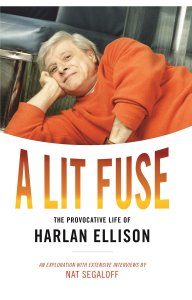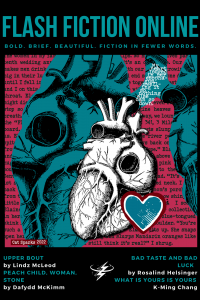Lila Garrott Reviews The Poppy War by R.F. Kuang
 The Poppy War, R.F. Kuang (Harper Voyager 978-0-06-266256-9, $26.99, 544 pp, hc.) May 2018.
The Poppy War, R.F. Kuang (Harper Voyager 978-0-06-266256-9, $26.99, 544 pp, hc.) May 2018.
Rebecca Kuang’s first novel is the start of an epic fantasy trilogy set in an alternate-universe China, the Nikara Empire, in which human beings access the magical powers of the gods by taking psychedelic drugs – which, in practice, means that it’s about people fighting wars while high. These shamanic practices are something of an open secret. The general public doesn’t know about them or believe in them, and the use or possession of drugs is a capital offense.
Rin, the protagonist, passes the official civil service examination with a very high score, and so goes from abused war orphan to student at the elite military academy, Sinegard, with the stroke of a pen. However, despite the technically meritocratic process of the examination, Sinegard is not designed to allow peasants to succeed. Thrown out of the official combat training courses, Rin befriends the mysterious Lore professor, Master Jiang, and finds herself initiated into shamanism, drug use, and all the power that comes with it.
This is all relatively standard fantasy fare: the orphan who turns out to have magical abilities (I placed a bet with myself at the beginning of the book as to whether she’d turn out to have a secret mystical heritage), the school story where the outcast has to train to acquire knowledge and social acceptance, the kingdom torn between multiple interior factions which is also facing an external threat and can (possibly) be saved by the up-and-coming young generation…. The Taoist nature of the shamanism and the worldbuilding’s roots in Chinese history lend the story a slightly different feel than other epics of this sort, but the overall lineaments are pretty typical. The most interesting and unique angle, the necessity of shamanic drugs in a society ravaged by opium use, which therefore hates and fears drug users and cultivators, is not explored much by the narrative.
Then the whole thing takes a left turn into grimdark. It turns out that the external enemy, the Federation of Mugen, behaves like an even more militaristic and fascistic version of imperialistic mid-twentieth-century Japan, and they conduct a genocidal total war against the Nikara. Rin’s idea of acceptable retaliation tactics under the circumstances means that she will probably cross many readers’ moral event horizons before the book is over: no side is clean in the conflict, and the major choices are between shades of grey.
Unfortunately, this is relatively standard for grimdark. Kuang is certainly good at describing horrific atrocities in vivid and nauseating ways, and good at delineating the precise degrees of moral slippage that Rin careers down due to various incidents, but the world of all-against-all, in which no one is quite trustworthy, everyone has an agenda, and anyone can die at any time, has already been explored thoroughly by authors from George R.R. Martin to Kameron Hurley.
In addition, the book ends before it’s possible to tell whether Kuang is going to end up subverting or adding anything interesting to any of the tropes she uses. At the point we leave Rin, she could become a compelling antihero in the future, but this entire book has been spent on her progress from relatively normal person with a strong work ethic into somewhat deranged mass murderer. Since this progress felt inevitable from close to the beginning, the book lacks tension: Rin is always going to make the bad decision. Now that this inevitable end has been reached, there’s the possibility of a continuation of the story that doesn’t feel constructed from a pile of previously used ideas – but there’s no way to know whether that will happen until the appearance of the sequel.
The Poppy War is written in clear, vivid, and good-humored prose; the characters are delineated clearly, the factions are comprehensible, and the analogies with our own world aren’t belabored. It’s well executed for what it does, but it’s a shame that Kuang chose to downplay the more original elements in favor of material that has been seen before. All of the novel’s ambition seems to have gone into the worldbuilding and magic system and then not been allowed to affect the actual plot. It’s by no means a terrible debut, but it is more than a little disappointing, and I hope we see better from Kuang in the future, as better clearly lies within her powers.
This review and more like it in the July 2018 issue of Locus.
 While you are here, please take a moment to support Locus with a one-time or recurring donation. We rely on reader donations to keep the magazine and site going, and would like to keep the site paywall free, but WE NEED YOUR FINANCIAL SUPPORT to continue quality coverage of the science fiction and fantasy field.
While you are here, please take a moment to support Locus with a one-time or recurring donation. We rely on reader donations to keep the magazine and site going, and would like to keep the site paywall free, but WE NEED YOUR FINANCIAL SUPPORT to continue quality coverage of the science fiction and fantasy field.








